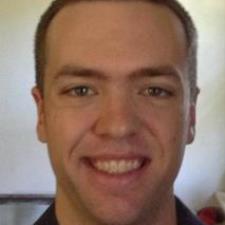Raymond B. answered • 10/18/20
Math, microeconomics or criminal justice
I don't have quantifier symbols on my keyboard, but there's a major mathematician who might help. Leibniz, cofounder of calculus. he had that similar necessity argument, sort of a Big Bang Prof. Sheldon Cooper or quantum physicist Hugh Everett multiuniverse or parallel universe argument.
There are potentially an infinite number of universes. In one of them God necessarily exists. That's possible. But if possible that God necessarily exists in one universe, he (or she) necessarily exists in all possible universes, including our universe.
Bertrand Russel, the famous philosopher/mathematician, once believed in Anselm's ontological argument. Did Bertrand ever comment on Leibniz's similar argument. Bertrand, the logician, never did discover what was wrong with Anselm's argument, while rejecting it, nonetheless. But still becoming "just" an agnostic, never an atheist, although leaning heavily towards atheism if there is a theism/atheism spectrum. The usual denial of Anselm is that existence is not a predicate, so if logic symbols show that, that's probably what you're looking for.
There are only 4 possibilities. The evidence shows God exists or the evidence shows God doesn't exist. But God as a necessary being can't be contingent on evidence. God either necessarily exists or necessarily doesn't exist. If God exists, God's existence is a tautology, a necessary truth. But if God doesn't exist, then God's existence is a contradiction, and God's nonexistence is a necessary truth, a tautology. If God doesn't exist, you just need to show how God's existence is a contradiction in terms, by definition. Much like all bachelors are married is a tautology or all bachelors are not married, a contradiction. Yet, at the quantum level, at least, we face contradictions, such as an electron being at 2 places at the same time, the uncertainty principle where you can't know position and acceleration. Police pull over Heisenberg and ask him how fast he was going. He says he doesn't know. the officer tells him just how fast. He responds, "darn, now I don't know where I am" Such is the debate over Anselm or similar arguments.




